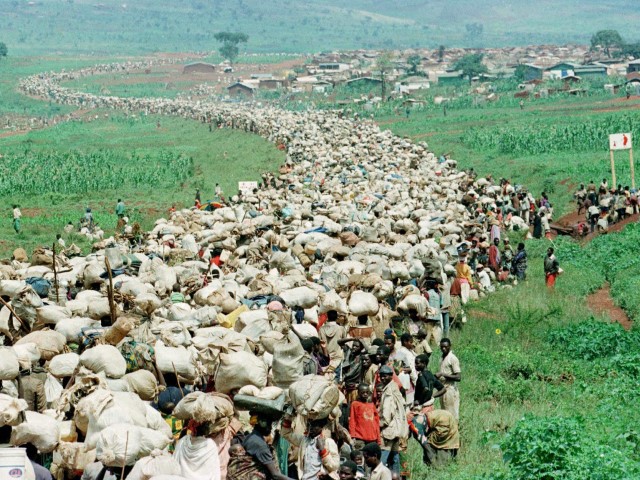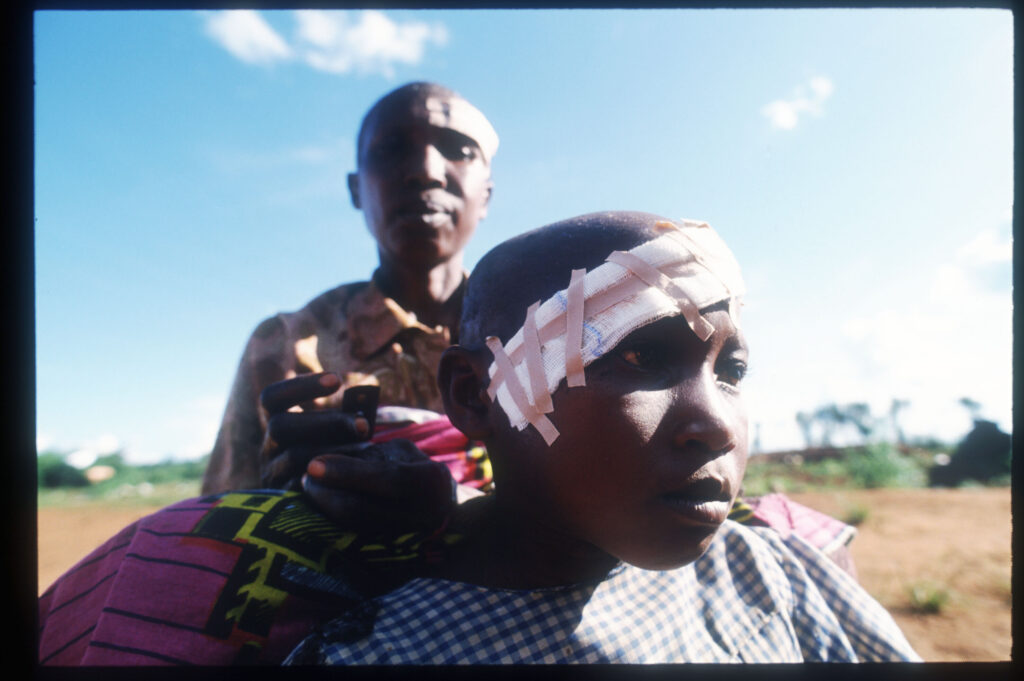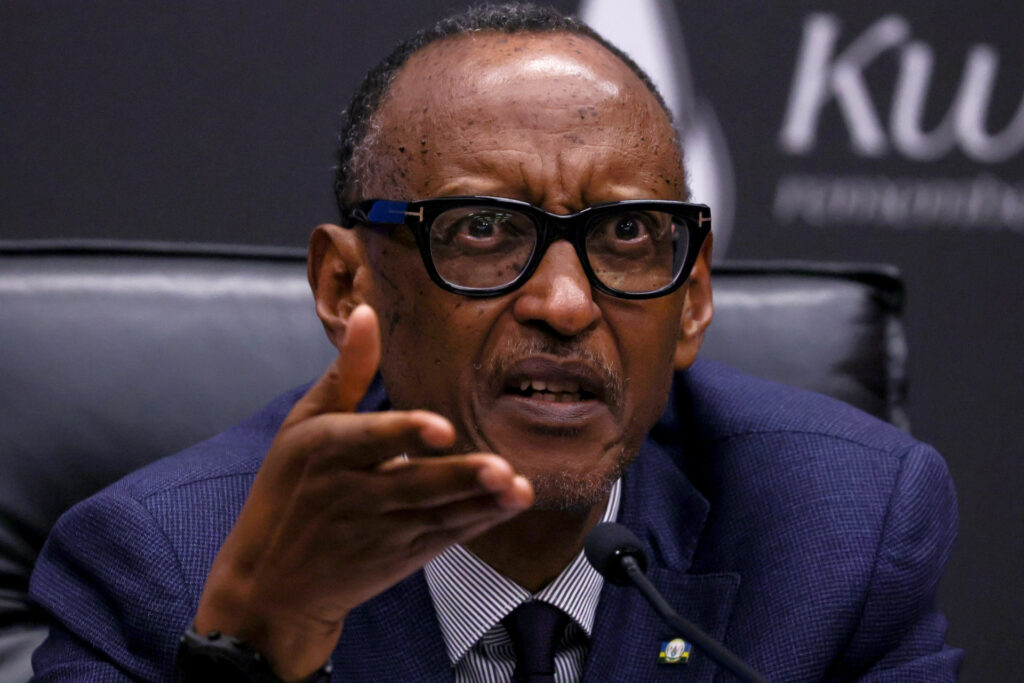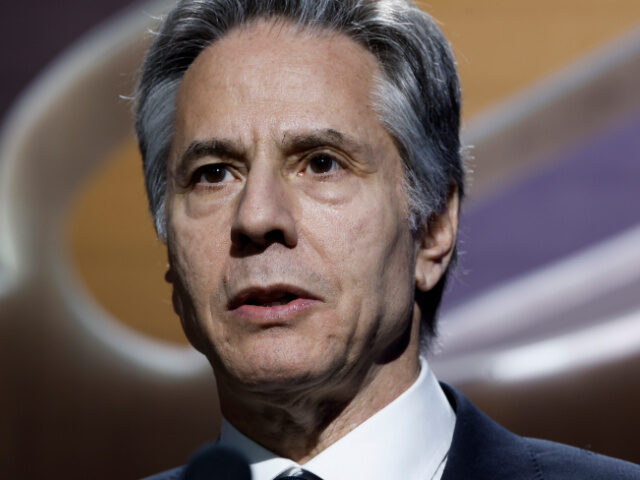An organization representing the ethnic Tutsi survivors of the 1994 Rwandan genocide against Tutsi people issued a statement condemning Secretary of State Antony Blinken, Rwanda’s New Times reported on Monday, for claiming the atrocities were committed against a variety of populations.
The outrage stems from a post that Blinken published on X on April 7, which Rwanda observes as the first day of the genocide, attempting to express solidarity with the victims of the atrocity. Rwanda calls the ceremonies to remember those killed and vow not to repeat the crimes of 1994 “Kwibuka,” or “remembrance.” April 7, 2024, marked the thirtieth anniversary of the genocide.
In his message, Blinken wrote that America “stands with the people of Rwanda,” adding, “We mourn the thousands of Tutsis, Hutus, Twas, and others whose lives were lost.”
The United States stands with the people of Rwanda during Kwibuka 30 in remembering the victims of genocide. We mourn the many thousands of Tutsis, Hutus, Twas, and others whose lives were lost during 100 days of unspeakable violence.
— Secretary Antony Blinken (@SecBlinken) April 7, 2024
The Rwandan genocide was the culmination of years of ethnic tensions, immediately preceded by then-President Juvénal Habyarimana and then-President of Burundi Cyprien Ntaryamira dying on April 6, 1994, when unknown attackers shot down a plane they were both traveling on. Both presidents were ethnic Hutus, the overwhelming majority group in Rwanda. Hutu militias responded to the killing by using mass media to call for the genocide of Tutsis, whom they generally blamed for the assassination, comparing all Tutsis to “cockroaches” and broadcasting lists of names of alleged Tutsis to kill all over the country.
The United Nations estimates that more than one million people were killed in the genocide, more than 800,000 of those killed estimated to be Tutsis. Hundreds of thousands of others endured rape as a weapon of war and severe mutilation, as Hutu mobs used machetes and clubs to beat or hack as many people to death as possible.
The genocide ended in July 1994 — with no useful international aid or intervention — after current President Paul Kagame’s Rwandan Patriotic Front (RPF) seized Kigali and ousted the Hutu genocide leaders.

Tens of thousands of Rwandan refugees, whom Tanzanian authorities have forced to return to their country despite fears they will be killed, stream back toward the Rwandan border on December 19, 1996. (Jean-Marc Bouju, File/AP)
Ibuka, an organization representing Tutsi survivors of the genocide, effusively condemned Blinken for not specifying that Tutsis were the overt target of the genocide. The organization published a letter signed by 16 leaders of organizations representing Rwandan genocide survivors.
“Survivors of the 1994 Genocide against the Tutsi in Rwanda are emotionally devastated and offended by your misleading statement,” Ibuka wrote in an official letter to Blinken, “issued on the day they were mourning the loss of their loved ones that were brutally killed during the genocide.”
“In not explicitly stating that the genocide specifically targeted Tutsi, your statement obscures the primary, intended victims,” the letter continued, according to the New Times. “While some Hutus and Twas also lost their lives, they were not the primary targets; the genocide overwhelmingly aimed at exterminating the Tutsi population. Indeed, it was extremist Hutu factions who orchestrated these atrocities.”
Ibuka accused Blinken of having “retraumatized many survivors, exacerbated our pain and suffering, and undermined the effort to advance knowledge and understanding of the genocide and human rights,” demanding he retract the post.

A wounded child poses on May 5, 1994, in Rwanda. Hundreds of Tutsis were killed at the Rukara Catholic mission in April 1994 in one of the worst massacres of the Rwandan violence. (Scott Peterson/Liaison)
The letter followed comments from President Kagame in which he also appeared to condemn Blinken shortly after his statement was published. Kagame appeared to interpret Blinken’s inclusion of Hutus, the primary group responsible for the genocide, on the list of victims as an accusation against his RPF, which has faced accusations of revenge killings after the end of the initial atrocities.
“Can you be kind enough to commemorate with us and stop there?” Kagame said on April 9, directing himself to Blinken. “There are 365 days in a year. Give us that day, 7th of April, commemorate with us – and then you can have the rest, 364 days, blaming us every day for everything you don’t like about us.”
The Associated Press reported on April 8 that Kagame claimed that the Biden administration’s refusal to specify the targeting of Tutsis was an “element of discussion” with the leader of the American delegation to 2024’s memorial event for the genocide, former President Bill Clinton, who was president at the time of the genocide and notably took no action in response.
“Remember that in the time of need when we needed every help we could get, the world turned its back on us,” Kagame said during the 2023 Kwibuka, declaring the moral of the historical episode to be “you are on your own.”

Rwandan President Paul Kagame (J. Countess/Getty Images)
The reports of outrage and disgust with Blinken do not mention any similar sentiments against President Joe Biden, who issued his own statement marking the thirtieth anniversary of the genocide on April 7. Biden’s statement differed from Blinken’s in that it distinguished the Tutsis as the majority of the targets of the mass killing.
“On this day 30 years ago, a brutal and systematic campaign of slaughter began in Rwanda. In the 100 days that followed, more than 800,000 women, men, and children were murdered,” Biden’s statement read. “Most were ethnic Tutsis; some were Hutus and Twa people. It was a methodical mass extermination, turning neighbor against neighbor, and decades later, its repercussions are still felt across Rwanda and around the world.”
While the note is titled “Statement from President Joe Biden on the 30th Commemoration of the Genocide in Rwanda,” Biden does not actually use the term “genocide” in its text.

COMMENTS
Please let us know if you're having issues with commenting.